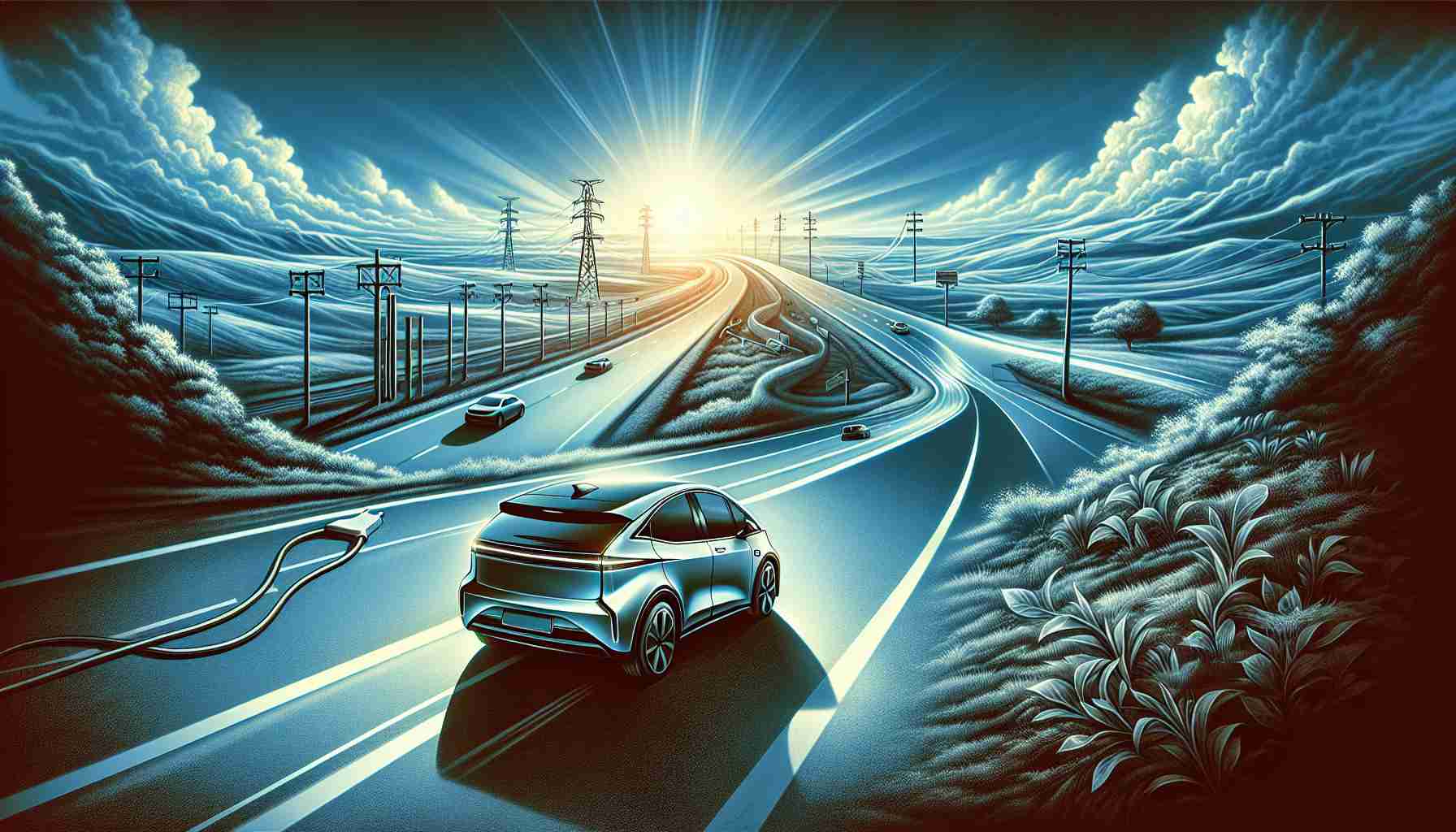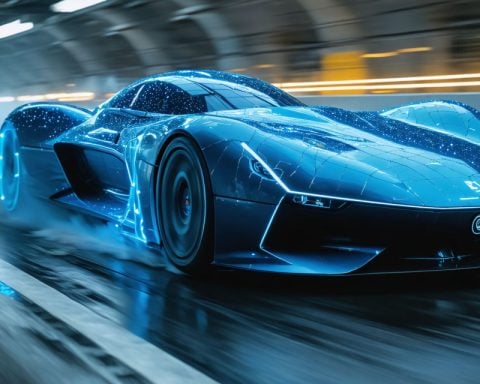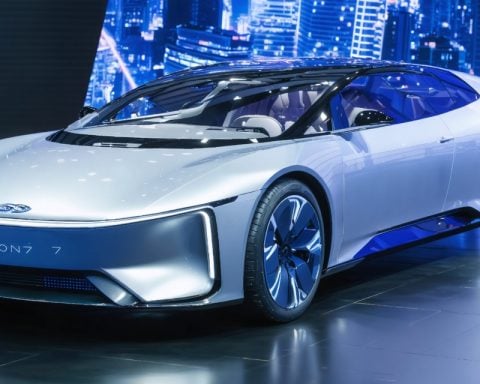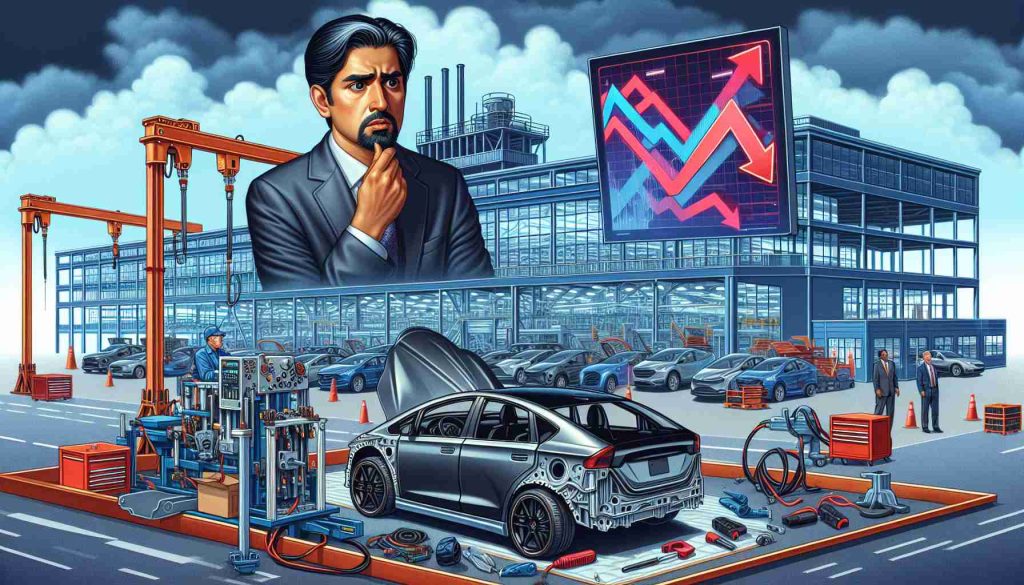The electric vehicle (EV) sector in the United States is at a potential crossroads. With the prospect of former President Donald Trump returning to the Oval Office, significant shifts in EV policies may be on the horizon. His plan includes efforts to rescind the much-utilized $7,500 tax credit for electric vehicle purchasers, which has played a crucial role in driving sales.
Under his initiative, dubbed “Unleashing American Energy,” Trump aims to eliminate subsidies he views as unfair. However, experts caution that altering established regulations will be cumbersome. The legal complexities surrounding current EV laws suggest that any changes could provoke significant legal disputes.
Manufacturers remain cautiously optimistic about their production goals, aware that steering away from EV progress could jeopardize their competitiveness and job security in a market increasingly focused on eco-friendliness. Rising consumer interest in sustainable options could dramatically influence EV adoption, highlighting the interaction between government policy, consumer desires, and environmental sustainability.
Societal impacts loom large with the possible reduction of incentives. Without robust support for electric vehicles, affordability might plummet, leading to stalled industry momentum and an increase in greenhouse gas emissions. The U.S. risks losing its competitive edge in the global auto market, where nations like Europe and China are currently steering ahead in EV advancements. As policymakers deliberate on future pathways, the trajectory for electric vehicles remains uncertain, posing a significant question: Will the push for sustainability continue, or will it stutter in the face of regulatory upheaval?
The Future of Electric Vehicles: Societal and Environmental Implications
As the electric vehicle (EV) sector stands on the brink of significant policy shifts, the implications stretch far beyond mere automotive sales. The potential revocation of tax credits like the $7,500 incentive threatens to reshape consumer behavior, ultimately reinforcing fossil fuel reliance. This could hinder progress toward emission reduction goals set by the Paris Agreement, as approximately 29% of U.S. greenhouse gases originate from transportation.
Furthermore, if subsidies are curtailed, the missing financial support could disproportionately affect low- to middle-income families, who are often the most affected by the cost of transitioning to electric alternatives. As the affordability of EVs declines, the gap between the eco-conscious elite and average consumers may widen, exacerbating socioeconomic disparities.
The global market dynamics also underscore a pivotal concern: The U.S. risks falling behind competitors like China, which leads the world in EV production and infrastructure. This could mean a significant loss of market share and innovation potential for American manufacturers.
Looking ahead, trends suggest that despite potential setbacks, the demand for sustainable transportation will remain crucial. As environmental awareness grows among consumers—a trend accentuated by recent climate-related events—the call for greener solutions will likely maintain pressure on policymakers. The long-term significance of adhering to sustainable practices in the automotive sector cannot be overstated, as it influences economic stability, environmental health, and the future of global trade.
Will Electric Vehicles Thrive or Decline? The Future of EVs Under Potential Policy Changes
The electric vehicle (EV) market in the United States finds itself at a pivotal moment, particularly as political dynamics shift and new policies are contemplated. With potential changes to incentives and support for electric vehicles, understanding the broader implications is critical for consumers, manufacturers, and environmental advocates alike.
Insights into Electric Vehicle Trends
As the EV sector grows, consumer interest in sustainable transportation alternatives has surged. In 2022, electric vehicle sales in the U.S. reached a record high, accounting for approximately 5% of all new vehicle sales. This trend reflects a growing demand for cleaner transportation options, driven by increasing environmental awareness and advances in battery technology.
Key Features of Electric Vehicles
1. Eco-Friendliness: EVs produce zero tailpipe emissions, significantly contributing to a reduction in air pollution.
2. Cost Savings: Despite higher upfront costs, owners save on fuel and maintenance compared to conventional vehicles, with electricity generally cheaper than gasoline.
3. Technological Innovations: Modern EVs come equipped with state-of-the-art tech, including advanced driver-assistance systems (ADAS) and connectivity features.
Use Cases for Electric Vehicles
Electric vehicles are not solely for personal use; they have diverse applications, including:
– Urban Commutes: Ideal for city dwellers looking to minimize costs and environmental impact.
– Fleet Services: Companies are increasingly converting their delivery and service vehicles to electric, reducing operating expenses and meeting sustainability targets.
– Ride-Sharing: Platforms like Lyft and Uber are investing in EV adoption, promoting environmentally friendly ride options for consumers.
Pros and Cons of Electric Vehicles
Pros:
– Environmental Impact: Lower carbon footprint and reduced reliance on fossil fuels.
– Government Incentives: Availability of federal and state tax credits, rebates, and other market stimulation efforts.
– Innovative Technology: Continuous improvements in battery life and charging infrastructure.
Cons:
– Infrastructure Challenges: Charging stations can still be sparse in many areas, creating range anxiety among potential users.
– High Initial Cost: Although prices are decreasing, EVs can still be more expensive than traditional vehicles.
– Dependence on Battery Resources: Concerns regarding the sustainability and sourcing of materials like lithium and cobalt used in EV batteries.
Market Analysis: The Future of EVs
As global competitors such as China and European nations invest heavily in EV technology and infrastructure, the U.S. risks falling behind if current incentives are eliminated. Analysts predict that if the proposed cuts to EV tax credits proceed, it could lead to a significant decrease in sales and hinder the U.S.’s ability to meet future emissions targets.
Predictions for the EV Sector
– Continued Growth Despite Challenges: Experts believe that consumer demand will continue to push the EV market forward, although the pace may slow without substantial policy support.
– Increased Competition: As major automakers like Ford, GM, and newcomers like Rivian ramp up production, the market may see a broader array of electric vehicle options, making them more accessible to consumers.
– Legislative Changes: If the political climate does not favor EV incentives, companies may need to pivot their strategies towards different green technologies, such as hydrogen fuel cells or hybrids.
Conclusion
The electric vehicle landscape remains fraught with uncertainty as regulatory changes loom on the horizon. The interplay between consumer desires, environmental sustainability, and governmental policy will be critical in defining the future of the industry. As discussions around EV incentives and support strategies continue, the need for innovation and adaptation will be more important than ever.
For more insights into electric vehicles and the ongoing shifts in the automotive landscape, visit SAE International.

















